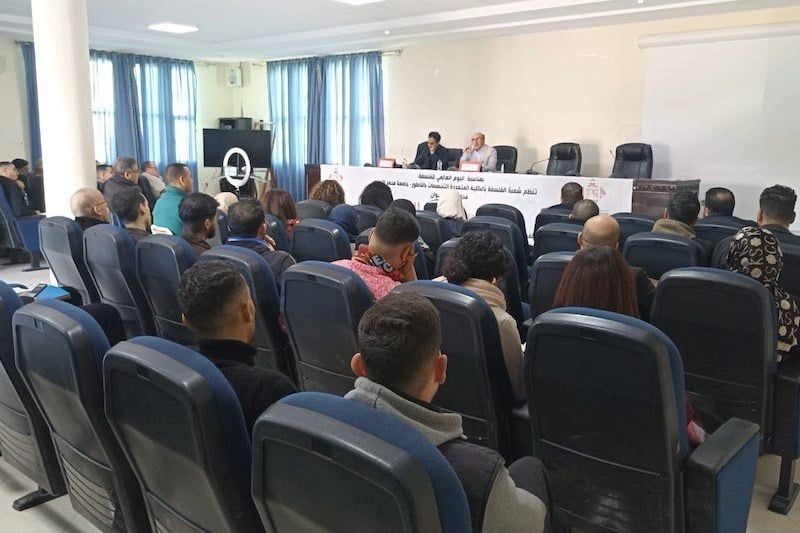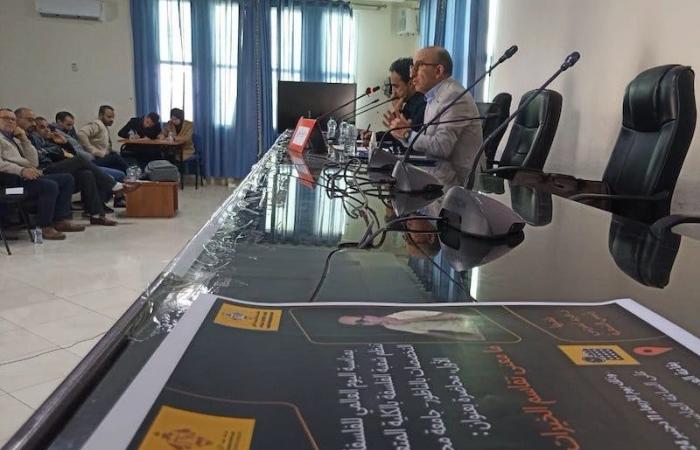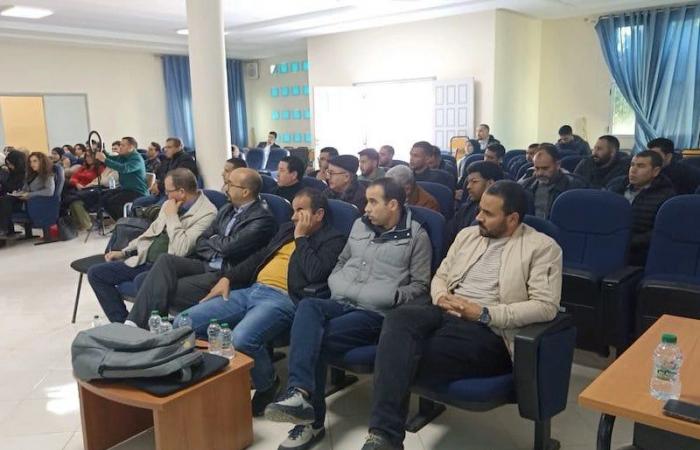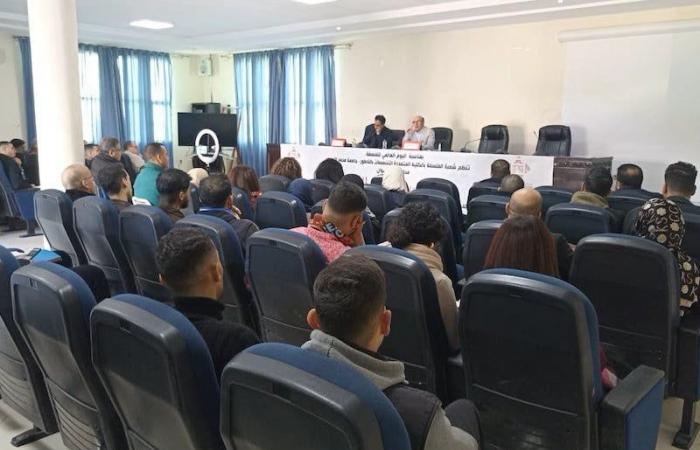On the occasion of World Philosophy Day, which was established by the United Nations Educational, Scientific and Cultural Organization (UNESCO) in 2002, Professor Farid Lamrini, Head of the Philosophy Department at the Polytechnic College in Nador, gave a lecture on Wednesday on the topic “What is the meaning of sharing goods?”
In the lecture conducted by Youssef Ashlahi, professor of philosophy at the aforementioned college, Lamrini touched on the most important topics related to the problem of sharing goods, stressing that the topic’s title was in an interrogative form in the Socratic manner, and it was originally an intervention in which he had participated earlier in a French symposium on the topic of “sharing.” Good things…ethics and knowledge.”
He told Marini that the topic is of great importance at the present time, and its purpose is enlightening, pedagogical and educational more than academic, to raise areas of discussion at the level of employing information and philosophical ideas and not just storing them, given that philosophical thinking is a way of life, and the topic of good things is sensitive and vital in human life.
The speaker pointed out that the meaning of “sharing” linguistically intersects with other meanings that have varying connotations, such as exchange, giving, and gift…but the concept of “sharing” has a spiritual connotation, as all religions have made “sharing” a spiritual virtue based on ethical principles such as trust, integrity, solidarity, and coexistence.
He also stressed that “good things” is a concept that refers to the meaning of the blessings that are divided among people within a common public space, and does not mean wealth, money, or possessions that carry a material meaning.
The lecturer highlighted that the general framework within which the topic of “sharing goods” falls is an epistemological framework within applied philosophy, and on the other hand, it falls within the sociological and economic frameworks. Therefore, the topic is approached at the level of moving it from its philosophical abstraction to the heart of social and economic life.
He explained that sharing goods is essentially the standard by which all problems that occur in human life are explained, and it can also be adopted as a philosophical reference in addressing the deviations of political systems, especially the liberal democratic system.
Sharing goods, continued the professor of philosophy at Nador College, is against human selfishness, in that man is a selfish machine. Therefore, this topic falls at the intersection between selfishness and altruism, meaning at the level of the individual’s relationship with others.
Lamrini continued, saying: “There is a strong relationship between the excessive use of power to share goods and human rights, and it is an indicator of the decline of individual rights in a number of societies that suffer from an imbalance between selfishness and altruism.

The lecturer spoke about the forms of sharing good things, through illustrative examples. Such as exploiting environmental resources, avoiding ecological dangers, benefiting from expanded regional projects, and established laws such as the traffic law, for example…
He also touched on the extensions of the issue of sharing goods at the level of human rights. Such as fairness, equality, justice, gender approach, and ensuring the rights of religious minorities, stressing that the framework in which humanity lives is a common public space that calls for sharing goods and not depriving them.
The lecturer emphasized that some behaviors resulting from poor sharing of goods, such as the fight against the hijab in France, hatred against foreigners, and other forms of exclusion falling within the framework of the war of identities, can lead to the emergence of extremist ideologies, political and religious deviation, and terrorism.

He told Marini that this reality that the world is experiencing today can only be addressed through the possibility of a partnership between two principles, namely recognition and reconciliation in light of transitional justice, stressing that there is no recognition without reconciliation. Reconciliation is what eliminates exclusion, deprivation and assault.
The head of the Philosophy Department at Nador College concluded his lecture by referring to what the Canadian philosopher Charles Taylor wrote, in his analysis and interpretation of some phenomena of exclusion, contempt for others, and social exclusion in contemporary societies, which inevitably leads to a bad and unfair sharing of goods: “The biggest and most dangerous problem of modernity is the rise of narcissism.” .









